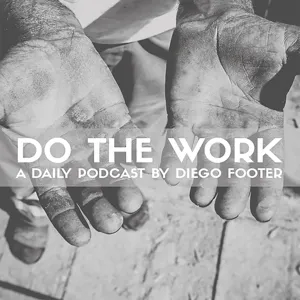Parasocial Relationships: That Podcaster is Your Friend!

Parasocial relationships are fascinating and it turns out Chuck knows what it's like from both sides. Listen in today to your old friends.
See omnystudio.com/listener for privacy information.
Explore "social interaction" with insightful episodes like "Parasocial Relationships: That Podcaster is Your Friend!", "The Science Of Happiness Sounds Great. But Is The Research Solid?", "Roblox: David Baszucki", "How Long Does It Take to Make Friends (And How Does That Process Work, Anyway)?" and "#88 with Greg Isenberg (part 2) - Why Plugins Are Big Business" from podcasts like ""Stuff You Should Know", "Short Wave", "How I Built This with Guy Raz", "The Art of Manliness" and "My First Million"" and more!

Parasocial relationships are fascinating and it turns out Chuck knows what it's like from both sides. Listen in today to your old friends.
See omnystudio.com/listener for privacy information.


In 2003, David Baszucki wanted to go viral. He had already sold a company that made educational software, and now he wanted to build something with mass appeal; with build-your-own avatars and myriad opportunities for users to compete and connect online. So in 2006, he and his co-founder Erik Cassel launched Roblox, a platform where you can play millions of different games, set in a wide array of virtual worlds.
You can adopt a pet, escape from jail, build and run your own restaurant, or solve a murder mystery; you can even create games of your own. During the start of the pandemic in 2020, half of the kids in the US were keeping in touch via Roblox, and today, the company is worth over 28 billion dollars.
See Privacy Policy at https://art19.com/privacy and California Privacy Notice at https://art19.com/privacy#do-not-sell-my-info.

How long does it take to make friends — for someone you meet who's a potential friend, to turn into an actual friend? If you're out of college and not a young adult anymore, you know that it sure feels like it's a process that takes an awfully long time.
Well my guest has actually crunched the numbers on this question and has the numerical figures to answer it. As well as a whole lot of insight into the dynamics of friendship that are harder to quantify. His name is Jeffrey Hall and he's a professor of communication studies who counts friendship among the topics of his research. Today on the show, Jeff explains the three levels of friends that make up the sort of friendship hierarchy, how many hours it takes for someone to move from one level to the next, and why it's hard to accumulate these needed hours as an adult. We also talk about how sheer time isn't the only factor that's needed to transform an acquaintance into a close or best friend, and the other factors that need to be in play as well. We then shift into discussing another element that influences the friendship-making process: the expectations each friend has for friendship. We discuss how expectations for friendship differ according to sex and personality, and what happens when two people have differing expectations for what it means to be friends.



#34
DO THE WORK PODCAST:
A dailyish show focusing on the reality of being a dad, running multiple businesses and all of the organization, productivity, and lifehacking that is in place to make it all work. The show will make you cry, laugh, like me, and hate me, but most importantly it will remind you to remember what is truly important in your life.
Follow Me:
Instagram: @DiegoFooter: http://bit.ly/2B3vprJ
YouTube: Diego Footer: http://bit.ly/SubtoDiego
Podcast: DO THE WORK: https://apple.co/2ERsLHZ
Produced by podcaster, entrepreneur, and dad of three daughters - Diego Footer.

Since Sartre classified things that make us happy into the categories of having and doing, science took up the investigation into materialism and experientialism. The results have been in for a while: experiences win by a wide margin, but why exactly?
Learn more about your ad-choices at https://www.iheartpodcastnetwork.com
See omnystudio.com/listener for privacy information.

Clap, Clap, Clap Your Hands:Resist the urge to clap at the next concert or play you attend - IF YOU DARE! Because as Robert and Julie explain in this episode of Stuff to Blow Your Mind, applause is viral. It's hard-coded into our mental capacity for synchronicity and social adaptation.
Learn more about your ad-choices at https://www.iheartpodcastnetwork.com
See omnystudio.com/listener for privacy information.
Stay up to date
For any inquiries, please email us at hello@podcastworld.io